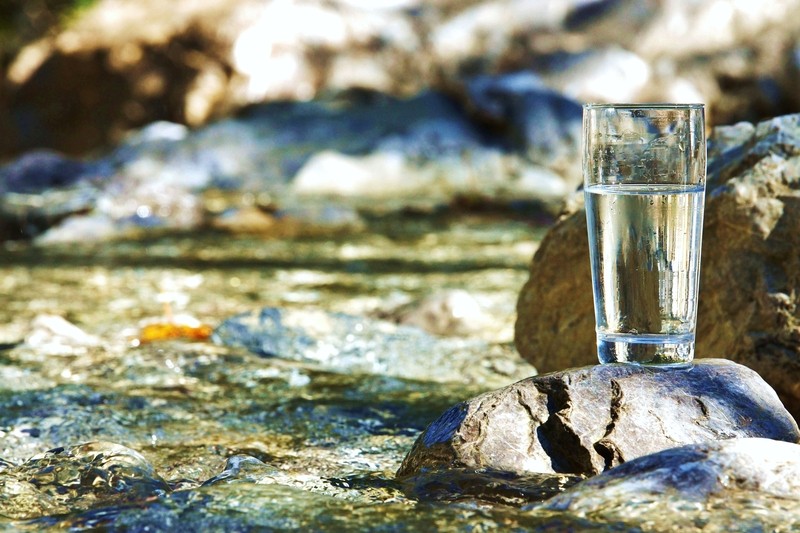You may see movies that portray some common myths about obtaining water in a survival situation. What? Movies don't always portray reality? Who knew? Keep in mind that movies are written by storytellers, not survivalists. It can't be helped if a little truth slips through the cracks.
The important thing to do is to review what you know and check to see if it's accurate. As for myths about obtaining water, check out the list below to keep yourself out of trouble.
1. Running water is safe to drink
Don’t count on it. Remember it came from somewhere and the source or what it came in contact survival water with between the source and reaching your location could be suspect.
2. Eating snow is a great way to rehydrate safely
NO. This can actually lead to further dehydration due to the process your body has to go through to heat and melt the snow once you eat it. It can also lead to hypothermia.
3. Drinking saltwater in small amounts is safe
NO NO NO. Drinking saltwater in any amount will lead to further dehydration and DEATH more quickly than if you went without water at all.
4. Water found in natural depressions is safe to drink
NO, this should be treated before drinking. It has all the risks associated with stagnate groundwater and runoff.
5. Drinking urine will prevent dehydration
You can drink urine 1 to 2 times in an extreme emergency but remember, urine is how you pass waste products out of your body. To turn around and put those waste products back into your body and force it to process and filter them again causes more work and bogs your body systems down.
6. Barrel Cacti are a great source of water.
Although cacti do hold water, the odds are that the inside will be tough and fibrous and the water contained will not be abundant. In addition there is a greater likelihood that the water inside will be bitter and acidic which could induce vomiting, diarrhea and cramps. This would further complicate a survival situation and speed up dehydration.
It's difficult to pick out which of these is the most important because that can vary depending on your situation. Salt water, however, is always dangerous. While a few gulps may enter your system when you're spending a day at the beach, this should not be enough for you to think that it's safe in small doses.
Salt water will always dehydrate you, so if you are in a bad enough circumstance to where you're debating whether or not you should risk it, it would be better to come up with a way to desalinate the water through boiling it and condensing the steam.
Another tip would be that if you know, people will be looking for you, start a signal fire (carry a lighter, so you don't have to waste sweat on a friction fire) and sit tight to conserve water and energy.
If you like these tips and would like to know more about this topic, check out Survival Cache.

right out of the ground!
“urine is how you pass waste products out of your body.” Not technically true, unless you consider the Urea and other minerals in your urine as waste. Defecating is how your body passes waste out of your body, your poop is 100% waste. Your urine is 95% water about 2% Urea and the rest are minute amounts of minerals and chemicals. Drinking urine is mostly ok to do, IF DONE PROPERLY, even long term, the only problem is the minerals can build up and hurt you. Urine is completely sterile when it first leaves the body so if you’re going to drink it you need to drink it IMMEDIATELY, it cannot be stored for later, that will kill you. It would actually be better to begin drinking it as a supplement with your water in a survival situation rather than drinking it when all your water is gone as a last resort.